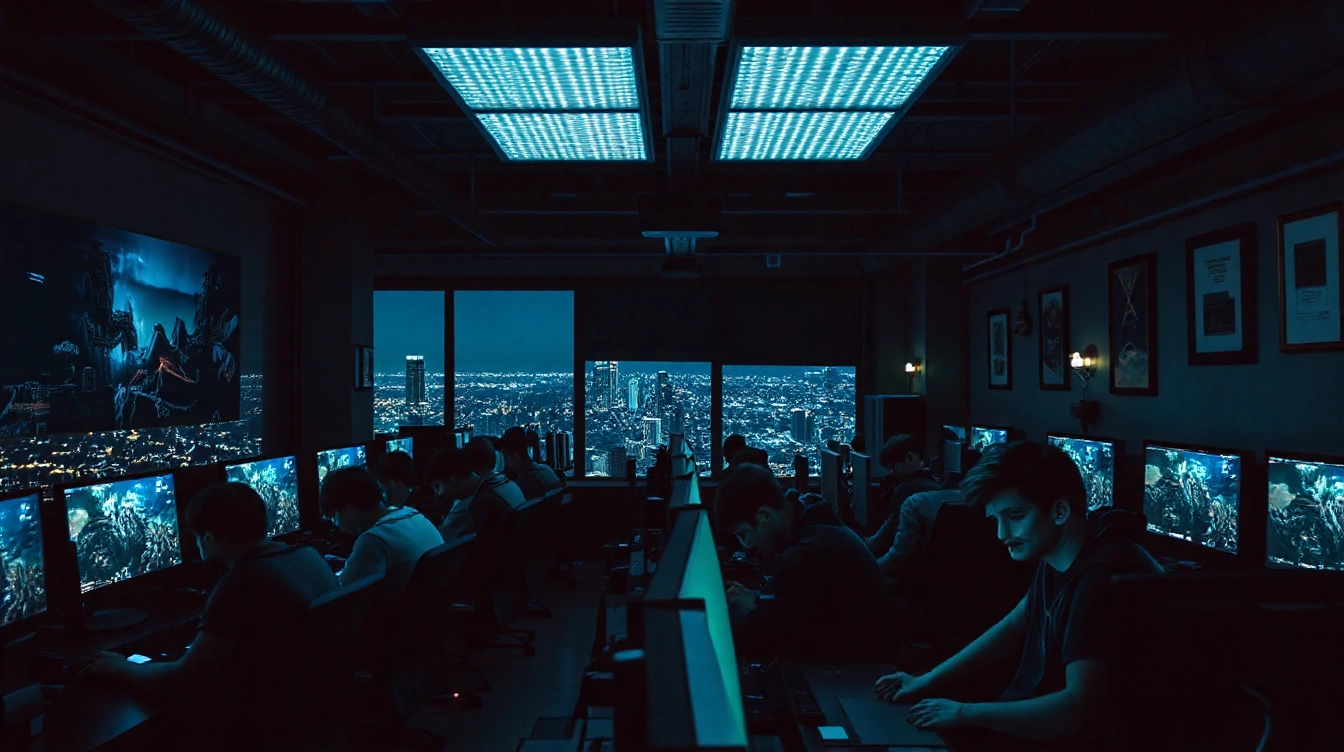Primary obstacles impacting UK video game development
UK video game challenges prominently include funding difficulties and access to investment. Many developers struggle to secure the capital needed for innovative projects due to limited venture capital focused on gaming in the UK. This restricts growth and delays production timelines.
Another key issue is talent shortages and skills gaps. The industry faces intense competition for experienced programmers, artists, and designers. This shortage can slow development cycles and affect the quality of game releases. Efforts to train and retain skilled professionals are critical to overcoming this hurdle.
This might interest you : How do UK video games integrate virtual reality for enhanced experiences?
Post-Brexit regulatory and trade changes add further complications. New regulatory and trade impacts have disrupted supply chains and complicated hiring international talent. Visa restrictions and altered import-export rules increase costs and administrative burdens on studios, undermining competitiveness.
Together, these industry obstacles create a challenging environment for UK game development. Overcoming these obstacles requires coordinated support from investors, government bodies, and education providers to ensure sustainable growth in the sector. Understanding these key challenges helps stakeholders develop effective strategies to bolster the industry.
This might interest you : How Does UK Computing Influence the Development of Video Games?
Financial constraints and resource limitations
Funding video games remains a significant challenge, especially for indie developers in the UK. Both public and private sources offer limited availability, making it difficult to secure consistent investment. Public funding programmes often have strict criteria and limited budgets, which restrict their reach to a small fraction of applicants. Private investment tends to favour established studios or projects with proven market potential, leaving many talented creators without support.
Access to resources is another hurdle tied closely to funding issues. Without sufficient capital, developers struggle to hire skilled teams, acquire necessary technology, or invest in marketing. This combination of funding video games and resource scarcity can delay project development or force compromises on quality.
Recent funding programmes have attempted to address these challenges by increasing grant offerings or supporting new talent. However, their impact remains limited compared to the total demand. Aspiring developers often rely on alternative methods such as crowdfunding, which, while helpful, does not replace stable investment sources. Understanding these obstacles is crucial for anyone looking to enter the UK gaming industry, as navigating funding and resource limitations requires strategic planning and persistence.
Talent acquisition and workforce development
The UK games industry faces a significant challenge in talent acquisition due to the intense competition for skilled developers, not only nationally but also from global tech hubs like Silicon Valley and Berlin. This competition drives demand for professionals proficient in emerging technologies such as virtual reality and artificial intelligence, areas where education and training programs often lag behind industry needs.
Many UK studios report a skills shortage in advanced programming, design, and production skills. The gap arises partly because educational curricula have yet to fully integrate these rapidly evolving technologies, leaving graduates underprepared for current market demands. This mismatch necessitates ongoing professional development and in-house training to bridge the divide.
Moreover, the sector recognizes the importance of promoting gender diversity and inclusion to expand the talent pool. Initiatives aimed at increasing female participation and supporting underrepresented groups have gained momentum, fostering a more equitable workplace culture. By addressing these factors—competition, skills gaps, and inclusion—the UK games industry strengthens its workforce development strategies and enhances its global competitiveness.
Regulatory challenges and Brexit implications
Small text: Navigating a shifting regulatory landscape
Brexit has significantly altered the regulatory environment for the UK games industry, creating new challenges around market access and compliance. One major issue is the emergence of trade barriers between the UK and EU markets. Previously seamless distribution and collaboration are now hampered by customs checks and increased paperwork, leading to delays and higher costs for game publishers aiming for EU audiences.
UK games regulation is also evolving independently from EU directives. This means studios must comply with two sets of rules: domestic legislation and EU regulations for sales within Europe. Content and data protection standards, important for player privacy and digital interaction, are becoming more complex. For example, adherence to the UK’s version of GDPR alongside the EU’s framework requires careful scrutiny.
Additionally, Brexit has impacted workforce mobility. Changes in immigration rules limit access to international talent, which is critical given the creative and technical expertise needed in game development. Companies may face difficulties attracting and retaining skilled professionals, potentially slowing innovation.
Understanding these regulatory shifts is essential for businesses to maintain competitiveness and ensure legal compliance across borders.
Technological evolution and innovation pressures
Understanding the driving forces behind change in the UK gaming landscape
The UK game technology sector is rapidly evolving, propelled by continuous breakthroughs in both hardware and software. Studios face substantial pressure to adopt emerging platforms such as virtual reality (VR), augmented reality (AR), and cloud gaming. These technologies open up exciting avenues for immersive player experiences but require significant investment and technical adaptation.
In this climate, innovation in UK games is not just desirable—it’s essential for survival and growth. However, developers must carefully balance the drive for cutting-edge features with commercial realities. Taking risks on novel technologies can be rewarding but also exposes studios to financial uncertainty.
Industry trends show a clear shift towards incorporating next-gen tech to stay competitive. For example, cloud gaming allows players to access games without high-end hardware, expanding market reach. Meanwhile, AR and VR enhance engagement through new interaction models.
Successfully navigating this landscape means UK game creators must remain agile, investing in both creative innovation and robust business strategies. This dual focus ensures they capitalize on technological advances while managing risk in a demanding market.
Competition and market sustainability
In today’s game development landscape, global competition is intensifying. UK developers face challenges from large international studios and publishers with extensive resources. This competition impacts opportunities for smaller UK studios, which must innovate rapidly to maintain relevance and secure funding.
Major acquisitions and consolidations in the industry further influence market sustainability. When large multinational companies acquire smaller studios, it can lead to reduced diversity in gaming genres and styles. While this consolidation sometimes increases financial backing for UK developers, it may also limit creative freedom and lead to job insecurity.
Market volatility significantly affects UK-based game companies. Fluctuations in consumer demand, shifting platform preferences, and economic uncertainties create an unpredictable environment. This volatility makes long-term planning difficult, pressuring developers to adapt quickly to survive.
Understanding these dynamics is essential for anyone engaged in the UK developer market. Staying competitive requires balancing creative vision with business acumen and being ready to respond to changes in the global and local market. The future of the UK game industry depends on its ability to navigate this increasingly complex and competitive environment.
Cultural diversity and representation issues
Diversity in UK games remains a pressing concern, with significant underrepresentation of minorities among developers. Despite the industry’s growth, the workforce does not yet reflect the UK’s rich cultural mosaic. This gap affects not only employment equity but also the range of stories and perspectives portrayed in games.
Inclusion in studios is gradually gaining momentum through targeted initiatives. Organizations and industry leaders are promoting schemes to attract talent from diverse backgrounds, offering mentoring, scholarships, and inclusive hiring practices. These efforts aim to reduce barriers and foster a more welcoming environment for underrepresented groups.
Cultural diversity within UK industry culture directly impacts creative output and relevance. Diverse teams bring unique experiences that enrich game narratives, design, and character development. This variety enhances authenticity and broadens appeal, making games more resonant for diverse audiences. As studios embrace inclusion, the potential for innovative storytelling and compelling gameplay increases, benefiting both creators and players alike.








